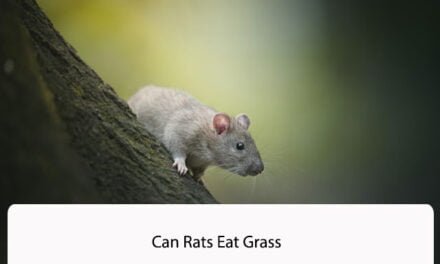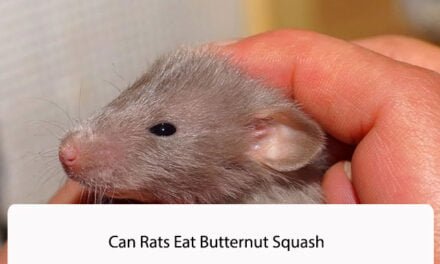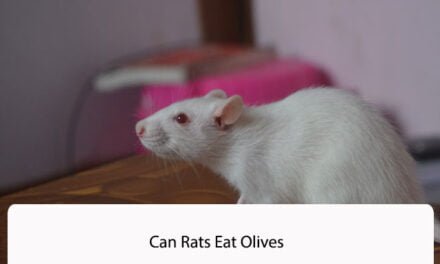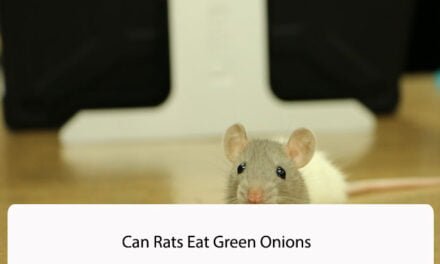Rats are known to be opportunistic feeders and will eat almost anything they come across, including fruits and vegetables. Cantaloupe, a sweet and juicy fruit, is a popular choice for many people. But can rats eat cantaloupe? In this article, we will explore whether cantaloupe is a safe and healthy food for rats to consume.
First, it is important to note that rats have specific dietary requirements that must be met in order to maintain their health and well-being. Their diet should consist of a balanced mix of protein, carbohydrates, and fats, as well as vitamins and minerals. While cantaloupe can provide some of these nutrients, it is not a complete source of nutrition for rats.
That being said, cantaloupe can be a healthy and tasty treat for rats in moderation. It is low in calories and high in vitamin C, which can help boost their immune system. However, it should not make up a significant portion of their diet and should be given as a supplement to their regular food.
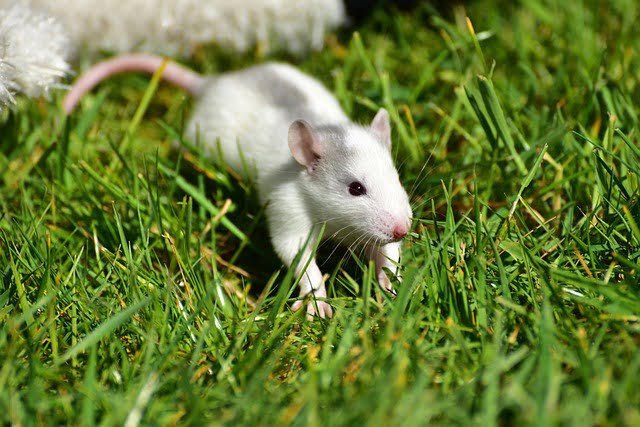
Understanding Rats’ Dietary Needs
As responsible rat owners, we must ensure that our pets are fed a healthy and balanced diet. Rats are omnivores, meaning they can eat both plant and animal-based food. However, their dietary needs are different from ours, and we cannot assume that what is good for us is also good for them.
When it comes to fruits, rats can eat a variety of them, including cantaloupe. Cantaloupe is a great source of vitamins and minerals, such as vitamin A, vitamin C, and potassium. However, we must be careful not to overfeed our rats with fruits, as they are high in sugar and can cause health problems if consumed in excess.
In addition to fruits, rats also need a good source of protein in their diet. This can come from animal-based foods, such as cooked chicken, eggs, and fish, or plant-based foods, such as beans and tofu. We should also provide our rats with a good source of carbohydrates, such as whole grains, and plenty of fresh vegetables.
It is important to note that rats have specific dietary requirements based on their age, weight, and overall health. We should consult with a veterinarian or a knowledgeable rat breeder to ensure that we are feeding our rats a diet that meets their individual needs.
In summary, rats can eat cantaloupe as part of a balanced diet, but we must be mindful of their overall dietary needs and not overfeed them with sugary fruits. By providing our rats with a healthy and varied diet, we can help them live long and happy lives.
Can Rats Eat Cantaloupe?
We know that rats are omnivores, which means they can eat both plant and animal-based food. But, can rats eat cantaloupe? The answer is yes, rats can eat cantaloupe. In fact, cantaloupe is a healthy and nutritious fruit that can benefit your pet rat’s health.
Cantaloupe is rich in vitamins A and C, which are essential for maintaining healthy eyesight, skin, and immune system. It also contains potassium, which is important for proper muscle and nerve function. Moreover, cantaloupe is low in calories and high in water content, which makes it a great snack for rats who are prone to obesity.
However, it’s important to note that cantaloupe should be fed to rats in moderation. Too much cantaloupe can cause digestive issues such as diarrhea and bloating. It’s recommended to feed your rat a small piece of cantaloupe once or twice a week as a treat.
When feeding cantaloupe to your rat, make sure to wash it thoroughly and remove the seeds and rind. The seeds can be a choking hazard, and the rind is tough and difficult to digest.
In conclusion, rats can eat cantaloupe, and it’s a healthy and nutritious snack for them. Just remember to feed it to them in moderation and remove the seeds and rind before feeding.
The Nutritional Value of Cantaloupe for Rats
Cantaloupe is a delicious and nutritious fruit that is enjoyed by many humans, but can rats eat cantaloupe too? The answer is yes, rats can eat cantaloupe and it can actually be a healthy addition to their diet.
Cantaloupe is a great source of vitamins and minerals that can benefit rats in many ways. Here are some of the key nutrients found in cantaloupe:
- Vitamin A: Cantaloupe is high in vitamin A, which is important for maintaining good vision, healthy skin, and a strong immune system.
- Vitamin C: Cantaloupe is also a good source of vitamin C, which helps to boost the immune system and protect against disease.
- Potassium: Cantaloupe is rich in potassium, which can help to regulate blood pressure and support healthy heart function.
- Fiber: Cantaloupe is a good source of dietary fiber, which can help to promote healthy digestion and prevent constipation.
Overall, cantaloupe is a nutritious and tasty snack that can be a healthy addition to a rat’s diet. However, it is important to remember that cantaloupe should be given in moderation, as too much can cause digestive upset. As always, it is important to consult with a veterinarian before making any significant changes to your rat’s diet.
How to Safely Feed Cantaloupe to Rats
When it comes to feeding your pet rats, it’s important to know what foods are safe for them to eat. Cantaloupe is a delicious and nutritious fruit that can be a great addition to your rat’s diet, but it’s important to feed it to them safely.
First, make sure to wash the cantaloupe thoroughly before feeding it to your rats. This will help remove any dirt or bacteria that may be on the skin. Next, cut the cantaloupe into small pieces that are easy for your rats to eat. Remove any seeds or rind, as these can be difficult for rats to digest.
It’s important to remember that cantaloupe should be fed to rats in moderation. While it’s a healthy treat, too much can cause digestive issues. We recommend feeding your rats cantaloupe no more than once or twice a week.
In addition to cantaloupe, there are many other fruits and vegetables that rats can safely eat. Some of our favorites include apples, bananas, broccoli, carrots, and kale. Just be sure to do your research before introducing any new foods to your rat’s diet.
Overall, cantaloupe can be a great addition to your rat’s diet when fed safely and in moderation. As with any food, it’s important to monitor your rat’s reaction and adjust their diet accordingly.

Potential Risks of Feeding Cantaloupe to Rats
While cantaloupe can be a tasty treat for rats, it is important to be aware of the potential risks associated with feeding it to them. Here are a few things to keep in mind:
High Sugar Content
Cantaloupe is a fruit that is high in sugar, which can lead to health problems for rats if they consume too much of it. Overconsumption of sugar can lead to obesity, dental issues, and even diabetes in rats. Therefore, it is important to limit the amount of cantaloupe that you feed your pet rat.
Pesticide Residue
Like most fruits and vegetables, cantaloupes are often treated with pesticides to protect them from pests and diseases. These chemicals can be harmful to rats if they consume them. To reduce the risk of pesticide exposure, it is important to thoroughly wash and peel the cantaloupe before feeding it to your rat.
Choking Hazard
Cantaloupe is a relatively soft fruit, but the seeds and rind can still pose a choking hazard for rats. To avoid this risk, it is important to remove the seeds and peel the fruit before feeding it to your pet rat.
Overall, cantaloupe can be a healthy and delicious addition to your rat’s diet when fed in moderation and with proper precautions. By being aware of the potential risks and taking steps to minimize them, you can safely incorporate cantaloupe into your rat’s diet.
Alternatives to Cantaloupe in a Rat’s Diet
While cantaloupe can be a healthy and tasty treat for rats, it’s important to remember that it should only be given in moderation as part of a balanced diet. If your rat doesn’t seem to enjoy cantaloupe or if you’re looking for other healthy options to include in their diet, here are some alternatives to consider:
Fruits
- Apples: Apples are a great source of fiber and vitamin C. Just remember to remove the seeds and core before feeding them to your rat.
- Bananas: Bananas are high in potassium and can be a good source of energy for your rat. They should be given in moderation due to their high sugar content.
- Berries: Strawberries, blueberries, and raspberries are all great sources of antioxidants and vitamin C. They should be given in moderation due to their high sugar content.
- Grapes: Grapes are a good source of hydration and can be a tasty treat for your rat. Just make sure to cut them into small pieces to avoid choking hazards.
Vegetables
- Carrots: Carrots are a great source of vitamin A and can help keep your rat’s teeth healthy. Just make sure to cut them into small pieces to avoid choking hazards.
- Broccoli: Broccoli is a good source of vitamin C and can help boost your rat’s immune system. It should be given in moderation due to its high calcium content.
- Peas: Peas are a good source of protein and can be a tasty treat for your rat. They should be given in moderation due to their high carbohydrate content.
Protein
- Chicken: Cooked chicken can be a good source of protein for your rat. Just make sure to remove any bones and skin before feeding it to them.
- Eggs: Cooked eggs can be a good source of protein and can help keep your rat’s coat shiny. They should be given in moderation due to their high cholesterol content.
Remember to always introduce new foods slowly and in small amounts to avoid upsetting your rat’s stomach. If you’re unsure about whether a certain food is safe for your rat to eat, it’s always best to consult with a veterinarian.
Conclusion
In conclusion, rats can eat cantaloupe as it is a safe and healthy fruit for them. Cantaloupe is a great source of vitamins A and C, fiber, and water, which can benefit rats’ overall health and digestion.
However, it is important to remember that cantaloupe should be given to rats in moderation, as too much fruit can lead to digestive issues and obesity. Additionally, the seeds and rind of the cantaloupe should be removed before feeding it to rats, as they can cause choking hazards and digestive problems.
Overall, cantaloupe can be a healthy and tasty treat for rats when given in moderation and prepared properly. As responsible rat owners, we should always keep in mind their dietary needs and provide them with a balanced and varied diet to ensure their optimal health and well-being.

Frequently Asked Questions
What fruits are safe for rats to eat?
Rats can eat a variety of fruits, including apples, bananas, berries, and melons. However, it is important to remember that fruits should only be given to rats as an occasional treat and not as a staple of their diet.
Can rats safely consume watermelon?
Yes, rats can safely consume watermelon. Watermelon is a good source of hydration for rats, especially during hot weather. However, like all fruits, it should only be given to rats in moderation.
Are honeydew melon seeds safe for rats?
Honeydew melon seeds are safe for rats to eat. In fact, they can be a good source of protein and healthy fats for rats. However, it is important to remember that seeds should be given to rats in moderation as they can be high in fat.
Is it safe for rats to eat mango?
Yes, rats can safely consume mango. Mango is a good source of vitamin C and other nutrients that can benefit rats. However, like all fruits, it should only be given to rats in moderation.
Can rabbits eat cantaloupe?
Yes, rabbits can eat cantaloupe. Cantaloupe is a good source of hydration for rabbits, especially during hot weather. However, like all fruits, it should only be given to rabbits in moderation.
What foods are poisonous to rats?
Some foods that are poisonous to rats include chocolate, caffeine, alcohol, and avocado. These foods should never be given to rats as they can cause serious health problems or even death. Additionally, some fruits and vegetables, such as rhubarb and raw sweet potato, can be toxic to rats and should also be avoided.


